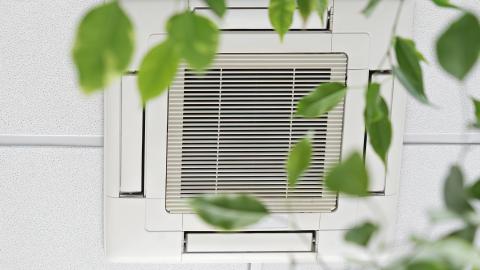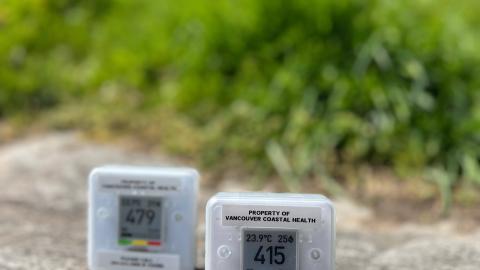Radon

Radon is the second leading cause of lung cancer in Canada after tobacco smoking.
What is Radon?
Radon is a colourless, odourless and tasteless radioactive gas that can sometimes accumulate to high levels inside buildings. If people are exposed to high levels of radon for a long time, this can have serious health effects. Radon is the second leading cause of lung cancer in Canada, after tobacco smoking. Radon enters buildings from soil through cracks in the foundation, walls or floors and gaps around cables or pipes. Radon levels are often highest in basements or lower levels of buildings as they are closer to the source of radon.
What can I do?
If you live in or are a landlord for a home on the ground floor or in a basement, VCH recommends testing for radon. Radon levels vary house-to-house, even between next door neighbours. The only way to know the radon level in your home is to test it.
A testing kit is easy to use and costs about $50. Kits are available from BC Lung Association, online or by calling 1-800-665-LUNG (5864). Radon testing kits can also be purchased at some hardware stores, online, and are available for loan at many library locations on the North Shore and Sunshine Coast.
If elevated radon levels are found, measures can be taken to address the problem, such as installing a venting system to direct the radon gas to the outdoors where the gas can be diluted to lower levels.
What are safe levels?
Ideally, radon levels should be as low as practical in normal occupancy areas. The World Health Organization recommends taking action if concentrations are above 100 Bq/m3. Health Canada recommends that you take corrective actions in less than 2 years if the radon level is between 200 Bq/m³ and 600 Bq/m³ and in less than 1 year if the radon level is greater than 600 Bq/m³.
*Note that these levels mentioned here are annual average concentrations.
Testing in schools
In winter 2017/18, VCH tested the air in public schools on the North Shore, Sea to Sky, Sunshine Coast, Powell River and Central Coast for radon. The results were shared with schools, which have now taken remedial actions as needed. Download the Radon in Schools Screening Report.
Schools in Richmond and Vancouver were not tested, since previous radon surveys have shown low levels in these areas.
Resources
-
-
Radon – About
Health Canada
-
Radon – Reduction guide for Canadians
-
Take action on radon
-
BCCDC radon information
BC Centre for Disease Control (BCCDC)
-
Radon and lung health
BC Lung Foundation
-




